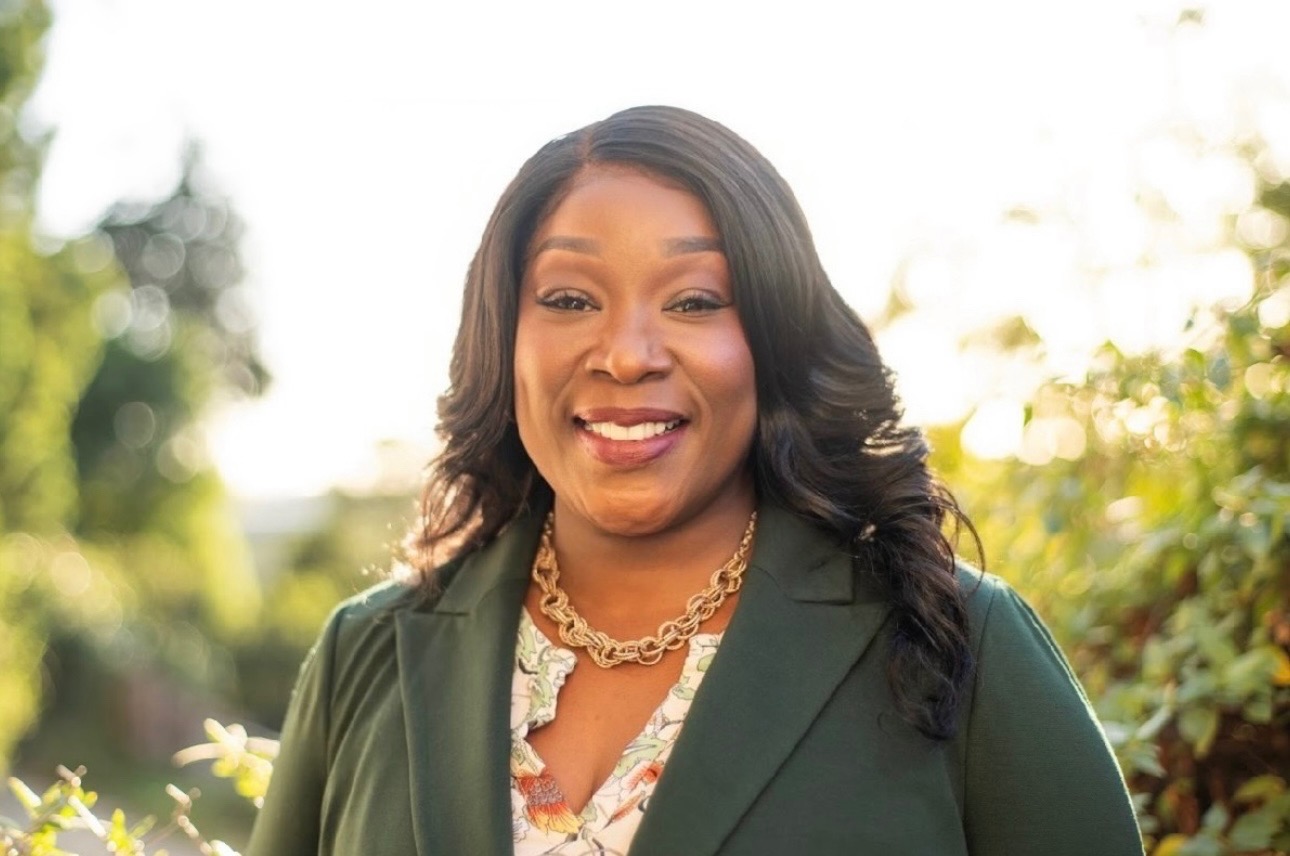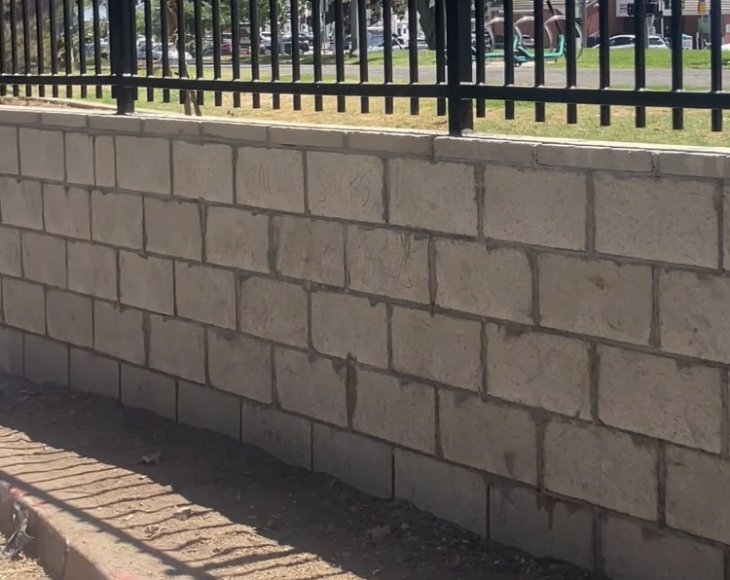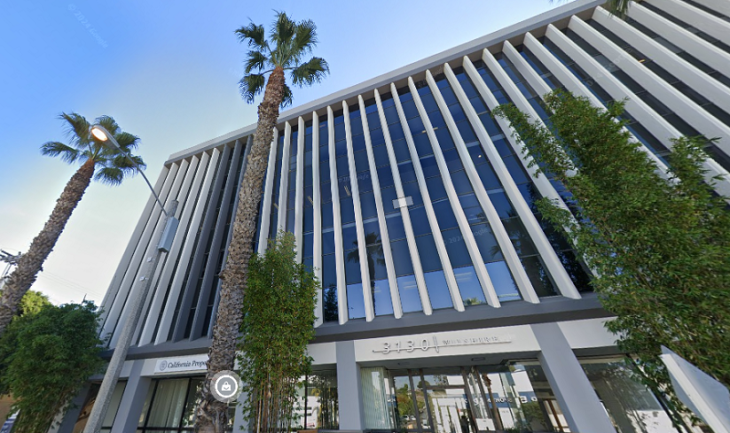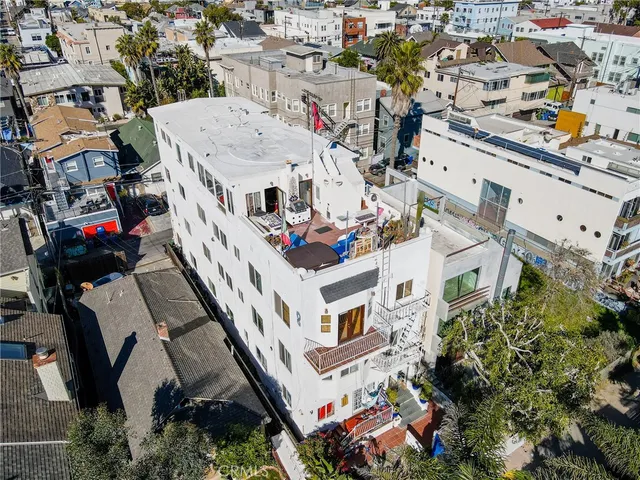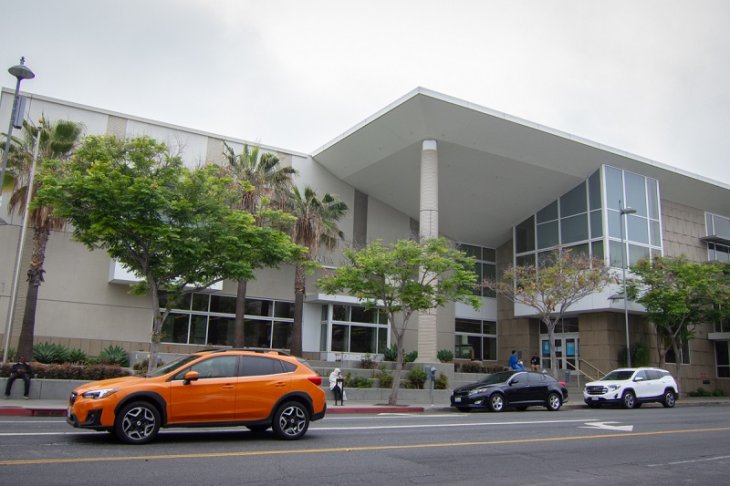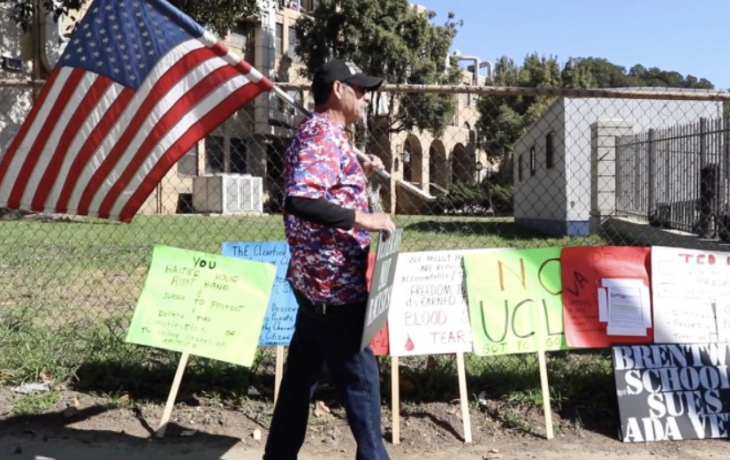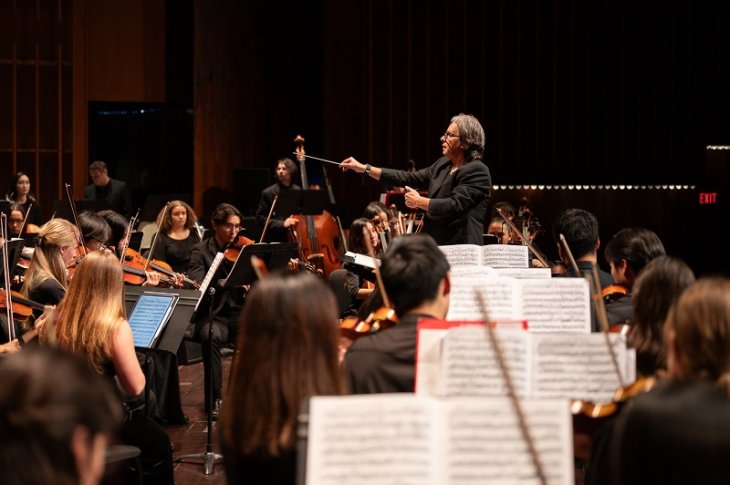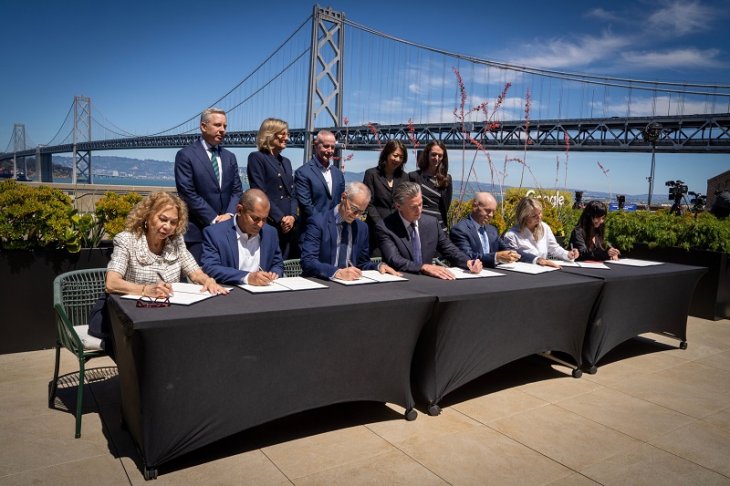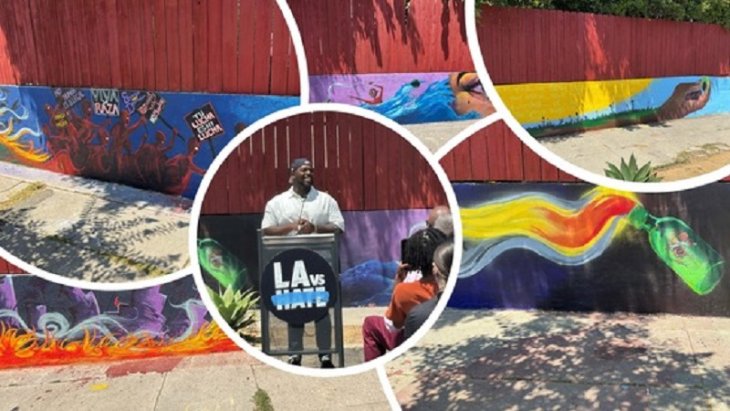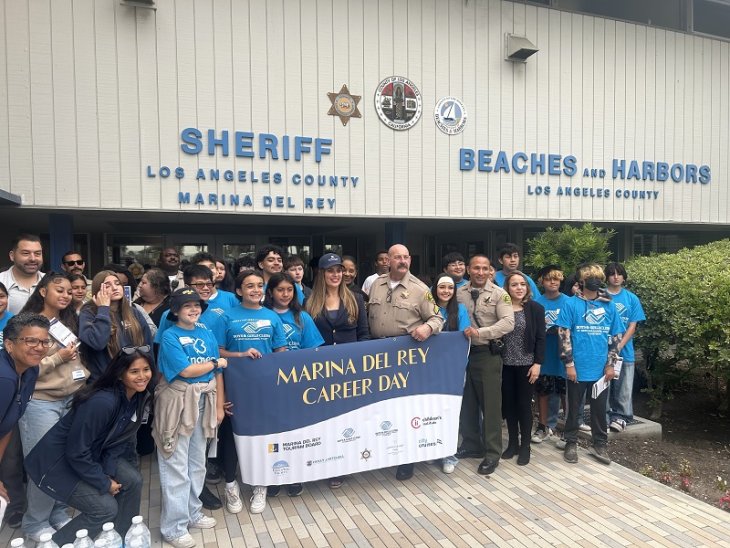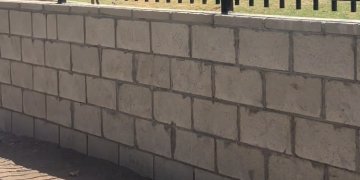Public Defender promotes progressive Democratic Party, labor endorsements in this competitive three-way race come March 5
By Nick Antonicello
Most contests for judicial seats are fairly mundane affairs where the candidates and campaigns have resumes and records that are fairly similar, but that doesn’t seem to be the case here in 2024.
For these races that have historically been non-partisan in discussion and dialogue, this year we have seen candidates discuss those beliefs, philosophy and support.
In the case of Ericka Wiley, she has secured a wide array of Democratic Party backing, particularly in liberal circles, showcasing political icon U.S. Representative Maxine Waters (D-43), the 85-year old Lion of the Left.
In addition to receiving the endorsement of ten sitting LA Superior Court jurists, Wiley has also received the backing of LA Controller Kenneth Mejia and LA Councilmember Eunisses Hernandez (CD-1).
Both represent a new generation of youthful political leadership and color elected in 2022, displaying this rising tide of populist socialism gone mainstream here in LA city municipal politics.
In addition, Wiley also secured the endorsement of the Culver City, Pacific Palisades and Santa Monica Democratic clubs, the Los Angeles County Democratic Party, the National Women’s Political Caucus of LA, the Black Young Democrats of Los Angeles, the LA Federation of Labor, SEIU Local #721, as well as the Los Angeles Times and LA Sentinel.
Wiley sees her campaign as “rooted in service” to her community as she was raised by a single mother and was one of six siblings living in South Central.
Wiley is a product of public schools in Inglewood and received her undergraduate degree from Fisk University in Tennessee and her law degree from the University of Cincinnati.
Wiley describes herself as a “woman of color, a mother, and the wife of an immigrant,” who is “uniquely familiar with the struggles and circumstances which bring many into the court system.”
Below is our Q&A with the candidate:
Tell us about yourself and why do you want to serve on the bench?
I have worked as a Los Angeles County Deputy Public Defender for more than 23 years. My experience includes advocacy in thousands of felony and misdemeanor cases. I have conducted more than 100 felony, misdemeanor, and juvenile trials. I have supervised and trained other lawyers as a Deputy in Charge.
Experience has shown me that in order to protect the public, we must provide those who suffer from mental illness, homelessness and drug addiction with the support and resources to improve their lives, and ultimately live in a way that ensures that we are all safe.
I have chosen to run for Judge of the Superior Court now because I have been encouraged to see the evolution of criminal justice reform offer opportunities like diversion and mental health treatment programs to allow defendants to better their lives, and ultimately live life in ways that enhances public safety. I want to be a part of this evolution of thoughtful reform which recognizes that a more rehabilitative and restorative approach that addresses the root causes of crime is the key to ensuring public safety.
Define justice. Is justice equally served here in Los Angeles?
Justice exists where there is fairness, equity, and equal opportunity for all individuals especially those who are marginalized and disadvantaged. I believe that the legal system in LA is a microcosm of the country (and world) at large where marginalized people have less or no access to available resources. I think that this is due to economics as well as systemic biases which have created entrenched barriers. I believe that key changes in the law have been designed to remove these barriers but that more needs to be done.
What is your current impression of the justice system and what changes would you seek and support?
I believe that the justice system has made progress in the last 10 years to improve access, pull back on mass incarceration and address the root causes of crime. Several key criminal justice reform measures have made it possible for willing judges to make progressive change. Implementation of those measures however has been slow, and judges have been resistant to use them. For example, the Racial Justice Act which was designed to address the injustices caused by systemic biases in the legal system has had little success.
Further as a deputy public defender who has made daily court appearances in criminal courts across LA County for the last two decades, advocating on behalf of mentally ill clients, it is clear to me that untreated mental illness is a catalyst for crime in a great number, if not a great majority, of cases. The entrenched system of sending defendants to prison for crimes committed when they were in active psychosis or impaired by mental illness, has created a revolving door of recidivism, homelessness, poverty and compromised public safety.
While some criminal justice reform measures like mental health diversion, homeless courts and CARE courts have indeed improved access to mental health treatment, there still exist an alarming lack of available beds for the seriously mentally ill who commit crimes of violence and who therefore need locked facilities. The wait for admittance into one of these facilities can take anywhere from 2 to 6 months while individuals remain incarcerated and untreated. This is a crisis that needs immediate attention and the funding of programs with beds to address the needs of this population.
As a bench officer I would support implementation and actual use of the progressive measures currently written in the law and the expansion of inpatient mental health treatment resources.
How does your time as a public defender prepare you for the role of a jurist?
My time as a public defender has exposed me to nearly every kind of criminal case. I have handled cases ranging in complexity from traffic infractions to capital murder. I have represented defendants in thousands of cases. I have conducted 102 misdemeanor, felony, and juvenile trials. I have also worked supervising and training other lawyers. I have gained extensive knowledge regarding the research and discovery of mitigating issues in my cases as well as the community-based prison alternatives which exist. I have had to develop patience, expert negotiating skills as well as the ability to work across the aisle with prosecutors and other law enforcement. I pride myself on my ability to remain calm and professional in moments of conflict and to be able to disagree without being disagreeable. I believe that these skills uniquely qualify me for the bench.
What courthouse would you prefer to serve and what kind of cases would you like to preside?
I would love to serve as a bench officer at the Inglewood Court and I would enjoy handling juvenile delinquency cases and to have a positive, meaningful impact on the lives and future of the young people in the community where I spent much of my youth.
What percentage of cases have defendants that have mental disabilities or drug and alcohol disorders?
I would estimate a minimum of 70% of the cases I currently handle in my felony trial assignment involve clients suffering from mental illness and/or drug and alcohol disorders.
What kind of diversion programs would you seek in lieu of real time served?
I am passionate about using diversion programs to rehabilitate and meet the needs of my mentally ill and homeless clients and those suffering from drug addiction. I have successfully litigated Mental Health diversion motions in many cases since 2019, avoiding conviction for my clients and instead routing them into community based mental health treatment programs. I have had clients placed in secure facilities such as Tarzana Treatment Center and Olive Vista. I have been equally successful in arranging for clients to be placed in collaborative court programs as well such as Veterans Court and the Women’s Re-entry Court. Each case has required extensive work in generating mental health and mitigation reports. Throughout my 23-year career and even before the passage of Senate Bill 215 (which authorized Mental Health Diversion) I have advocated, researched, and arranged substance abuse, and mental health treatment for hundreds of clients as alternatives to prison.
If you were speaking to a voter, what are the three reasons you would give for them to consider or support your candidacy?
1) I know the law and have extensive professional experience.
2) I have the lived experience of growing up in a single parent home and an underserved community like many of those who are impacted by the justice system, and therefore can understand the root causes of crime as well as what solutions work best.
3) As an African-American woman and a public defender, my election would serve to enhance inclusion of voices and perspectives currently underrepresented on the LA Superior Court.
How much time are you spending campaigning and what is the budget for the effort? How are you reaching voters?
I spend about 3 hours per day on campaign related activities and I am reaching voters primarily through social media and digital ads. I have also utilized digital billboard and mailers. My budget is approximately $100,000.
Would you support reforming the way judges are selected and elected? Would you support a single, ten-year term and a mandatory retirement age?
I would support reforming the LACBA rating process which favors prosecutors and underrates women and public defenders. I believe that the appointment and election processes are both legitimate and don’t believe either needs to be changed. I don’t believe that a 10-year term is necessary, and I believe it would discourage application by younger lawyers with diverse views and perspectives. I would also not support mandatory retirement age. I believe mental acuity and the ability to serve vary among bench officers of advanced age and judges should serve as long as they are willing and able.
For more information on the candidate, visit her website at www.WileyForJudge.com
Nick Antonicello is a thirty-one year resident of Venice who is covering the various judicial contests that will appear on the March 5thPrimary ballot. Have a take or a tip on the candidates? Contact Antonicello via e-mail at nantoni@mindspring.com

